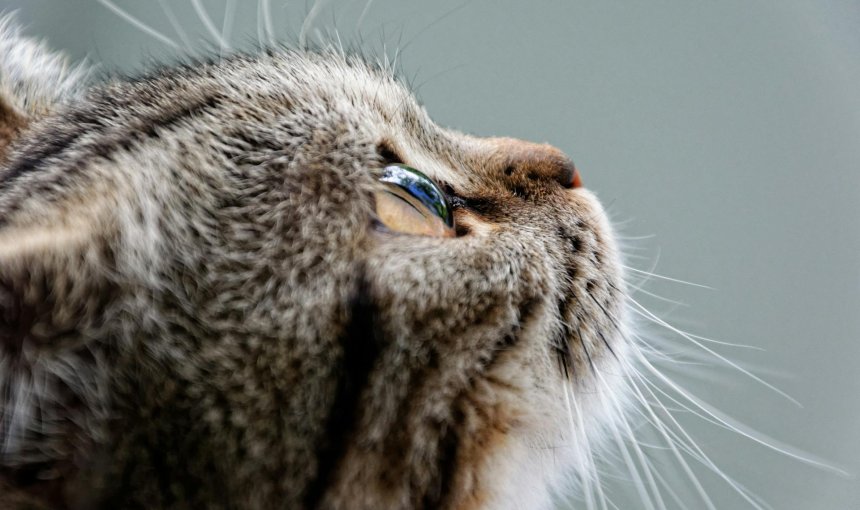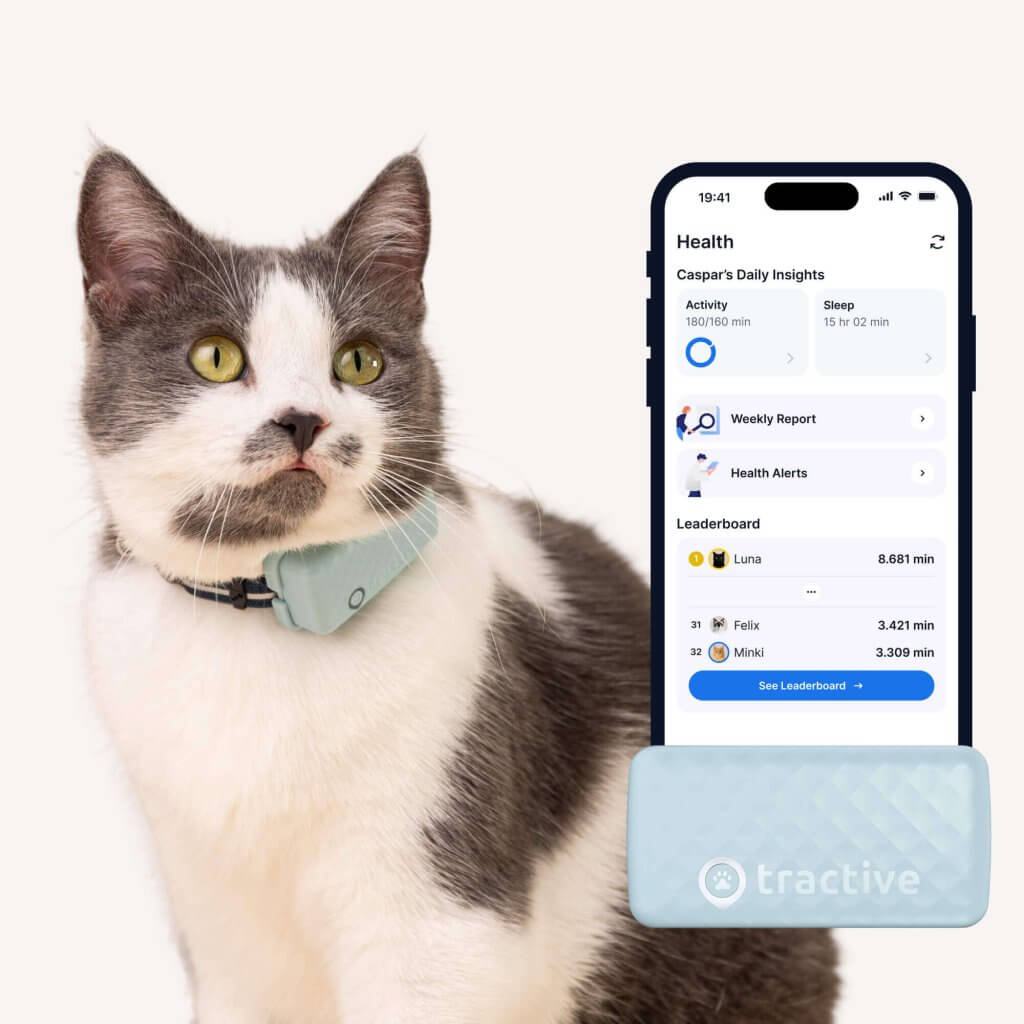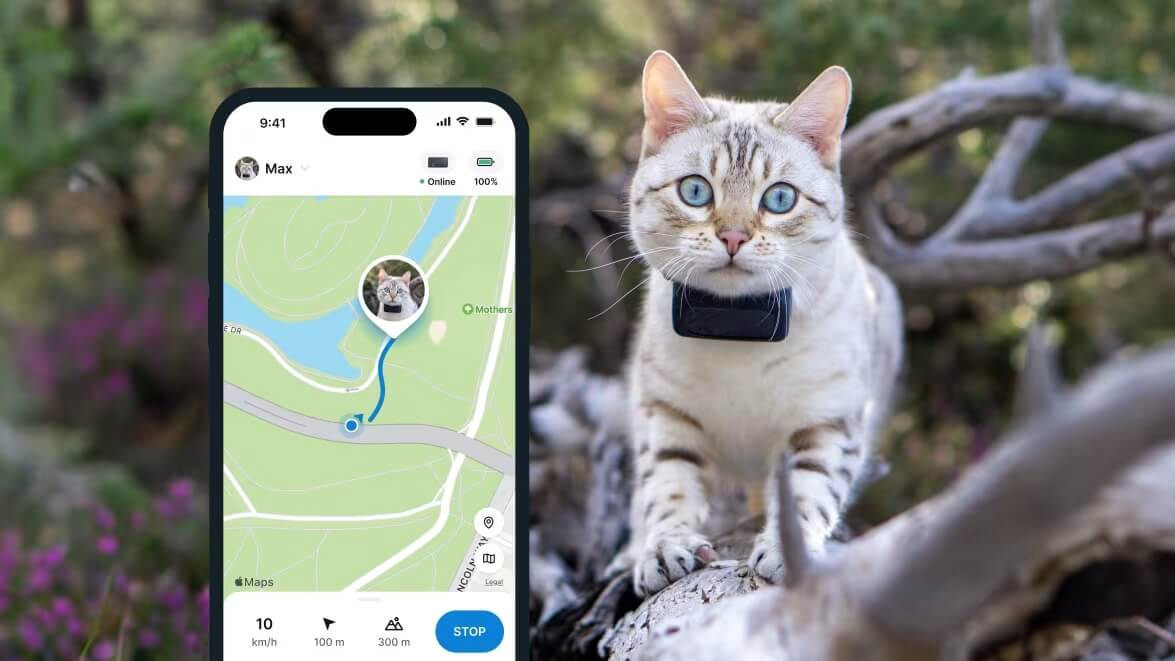Is My Cat Depressed? All The Easy To Miss Signs
Much like dogs (and humans), cats are also capable of complex emotions like grief, loss, pain...and depression. But it's also a condition that's easy to miss - until it's too late. Here are 4 key signs to keep an eye out for.

Whether it’s from losing a loved one, shifting apartments, or struggling with illness – all of these situations can result in a depressed cat. Now with all that said – how to tell if your cat is depressed? And how can keeping track of your cat’s activity actually help you catch on to the signs of depression early on? We’re going to cover all that and more in this post – so you can help your little buddy live their best, happiest, healthiest life by your side.

Find out where your cat spends their time.
Read moreCan cats get depression?
Yes – like humans, cats can also get depressed.1 And the causes may range from benign and temporary – to more serious ones. But before you panic, ask yourself:
- How active is my cat in general?
- Are they sociable by temperament?
- How long has my cat seemed out of sorts or less cheerful or active than usual?
- Have I just made a big change to my cat’s routine? (Like shifting apartments or mealtimes?)
- Has my cat just had a long day of playtime or spending time around other pets or people?
How do I know if my cat is depressed?
In general, the key difference between a depressed cat and just a tired one is how interested they are in engaging or taking part in your regular activities together. (Including mealtimes, playtime, or just cuddling time.) A tired cat might be on snooze mode, but they’ll still respond (even if that’s just glancing your way) when you bring out their food bowl or call out their name. A depressed cat might not respond to any of these activities. (Or they’ll take forever to do so.)
Another key sign to look out for is a sudden change in your cat’s regular behaviors. If they’re active and sociable by temperament and you now see them in a slump – it could indicate something’s wrong. On the other hand, it can be easy to miss out on the signs of depression in cats that are more “chill” by temperament and less active in the first place. So it’s important you stay vigilant for a change in their habits as well.
The most common reasons behind “cat depression”
- The loss of a loved one.
Not just from them passing away, but even from moving away. Much like humans, cats can and do experience grief, loss, and loneliness if someone they feel connected to is no longer around.2 - A change in routine.
Like if you’ve shifted apartments, taken on a different work shift, or even introduced a new pet home. - Chronic pain.
Senior cats are more at risk for painful, mobility-affecting conditions like arthritis. Over time, this can lead to your cat feeling depressed, since they’re no longer able to jump up to their favorite perch or window (or on your lap) as easily as before. - A loss of their senses.
Like from their eyesight, hearing, or limbs. This can leave them feeling disoriented and unable to move around as easily as before. Senior cats are also vulnerable to dementia, which turns up as a change in their sleep cycles as an early warning sign. - Sickness or injury.
A sick or injured cat might be more likely to hide. If your cat’s health is deteriorating or they’re struggling with an injury that isn’t easily visible, you might see them in a bit of a slump – much less active than before.

Get health alerts for your cat
Our cats can’t always tell us if something’s wrong. But if their tracker detects unusual changes in their routine, you’ll get an alert, helping you catch potential issues early.
The main signs of depression in cats – and what you can do
Keep an eye out for:
- A drop or loss of appetite – or if your cat just seems more reluctant around mealtimes
- Lack of interest in playtime or interacting with you or your family members
- A drop in how often they venture outdoors (especially if they’re an outdoor cat). Or they might stick to one room in your house, if they’re an indoor cat – or one spot in your backyard.
- Hiding behaviors. Your cat might hide in different areas around your house to find a secure spot. This is often another indication they might not be feeling their best, health-wise.
- Attention-seeking behaviors. A cat that’s generally unhappy or feeling neglected might also cling to you and demand your attention more often than usual.
- An increase in sleep time. If your cat is depressed, they might sleep even longer. Or change their favorite sleeping spot to another around your house. Even more worryingly, a change in a senior cat’s sleep patterns might signal cognitive decline.2
“Unusually low energy is a red flag for unhappy cat behavior, suggesting a mental or physical problem.”3
– WebMD
In many such cases, your cat might simply not be 100% comfortable with their environment yet. So they might be reluctant to eat anything in an “unfamiliar” place – or venture outdoors, away from safety. Give your cat some time to adjust – and introduce them gradually to whatever’s “new” in their environment. (Whether that’s a new pet, a new house, or a new outdoor territory for them to conquer.) Make sure to also spend some quality time with them – just the two of you. So you can help them ease into their new environment quicker.
You colud also use a calming pheromone or even some catnip around your new space. These can help cats relax better and are perfectly safe for them to be around. Bring in some new toys and games around your house to keep your cat engaged. If they’re happy and busy occupied with a distraction, they might adjust to their new environment that much better.
When to drop by your vet
Now, on the other, hand if you haven’t made a big change to your cat’s routine and you:
- Notice their slump persisting
- Notice your cat peeing more often in their litter box – or around the house
- Hear your cat vocalizing less (i.e., they’re quieter than usual – no longer meowing as much)
…then get in touch with your vet. They might be able to prescribe you natural supplements that can help combat depression, or even psychoactive medication, if necessary.
More ways you can help your cat overcome a depressed state
Get them a companion
If your cat is mourning the loss of another, fellow pet – give them some time to grieve first. Then, gradually – and after tons of cuddle time spent with you – consider introducing them to a new “roommate.” If your cat has some company at home, it can help keep them occupied and busy – which can help reduce or prevent stress from building up. With time, your cat might slowly adjust to the new routine of having a playmate at home whom they can now boss around and spend time with.
Get them spayed or neutered
There’s some evidence to suggest that spaying or neutering your cat can actually help improve their mood.4 Why? Because, simply put a cat that hasn’t been “fixed” tends to get stressed when in heat. Spaying or neutering can actually help relieve this stress and reduce some aggressive behaviors that might arise during this time. This can also help you:
- Prevent them from escaping (to find themselves a mate) – where your cat might be at risk of getting hit by a car, injured by another pet or predator, or stolen by a pet thief.
- Help reduce the number of strays around the country.
- Reduce unwanted behaviors that accompany a cat being in heat, including yowling, wailing, biting, or urine spraying to mark their territory.
Read more: Cat In Heat? What You Need To Know.
Let them outdoors – safely
Even if yours isn’t the most outdoorsy of cats, too much indoor time can stress them out.5 With gradual supervised outdoor time, you can help your cat enjoy the exercise and sensory stimulation of being out in nature. Which, with time, can help keep them healthy – both physically and mentally. Even your balcony, backyard, or a local park will work nicely.
But before you do, make sure your cat has a collar with an ID tag – and ideally, also a microchip. All these steps can help prevent them from being mistaken as a stray. It’s also a good idea to let your neighbors know so your cat is a familiar face around town.
As as an emergency measure, a cat GPS tracker like Tractive can help you track your cat in real-time – with just a glance at your phone.

Else, you could set up a “safe zone” around your backyard so your tracker can monitor your cat while they’re wandering about. The minute your cat ventures out of it, you’ll get an escape alert on your phone.



